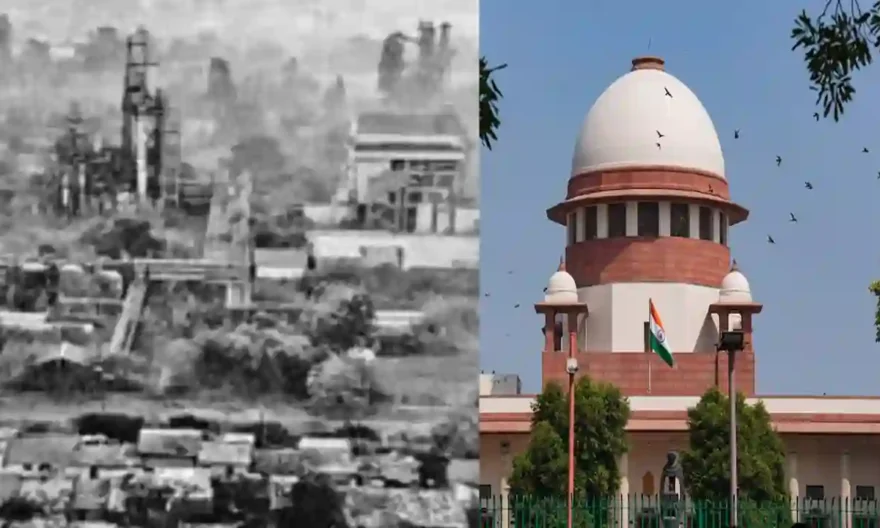
The Supreme Court on Thursday reserved its decision in the curative petition filed by the Central Government in the 1984 Bhopal Gas Tragedy from US based firm Union Carbide Corporation (UCC), now owned by Dow Chemicals.
A Constitution Bench comprised of Justices Sanjay Kishan Kaul, Sanjiv Khanna, Abhay S Oka, Vikram Nath, and JK Maheshwari finished hearing arguments and reserved its decision.
The Bench was hearing a petition for compensation for deaths and injuries caused by the Bhopal Gas Tragedy in 1984.
The Central Government’s curative petition, filed in 2010, challenged an earlier top court order concerning the settlement amount paid by Dow Chemicals or Union Carbide Corporation to the families of the tragedy’s victims and survivors.
The government requested a re-examination of the Supreme Court’s February 14, 1989 decision, which set compensation at USD 470 million, claiming that the 1989 settlement was seriously harmed.
The Central Government contended that the 1989 compensation was determined on the basis of truth assumptions that were unrelated to reality.
The Supreme Court had previously dismissed a curative petition filed by the Central Bureau of Investigation (CBI) in 2010 seeking to increase the punishment meted out to the victims of the tragedy.
In response to public anger over a Bhopal court decision that sentenced Union Carbide executives to two years in prison, the investigating agency turned to the highest court. Keshub Mahindra, a former chairman of Union Carbide India, was among those found guilty.
The Supreme Court had rejected the CBI’s request for a curative ruling in 2011, concluding that “no satisfactory reason has been presented for filing such curative petitions after roughly 14 years from the 1996 judgement.”
Bhopal Gas Disaster
In December 1984, methyl isocyanate and other hazardous gases leaked from Union Carbide India Limited’s pesticide plant on the outskirts of Madhya Pradesh’s capital of Bhopal.
More than five lakh people were exposed to the toxic gases, and at least 4,000 died in the days that followed. Thousands more died as a result of the gas leak’s effects in the years that followed. According to government estimates, 15,000 people have died as a result of the disaster over the years.
Survivors of the tragedy have higher rates of cancer and birth defects, as well as a weakened immune system. The International Labour Organization named the Bhopal gas tragedy as one of the world’s major industrial accidents in the last century in April 2019.




